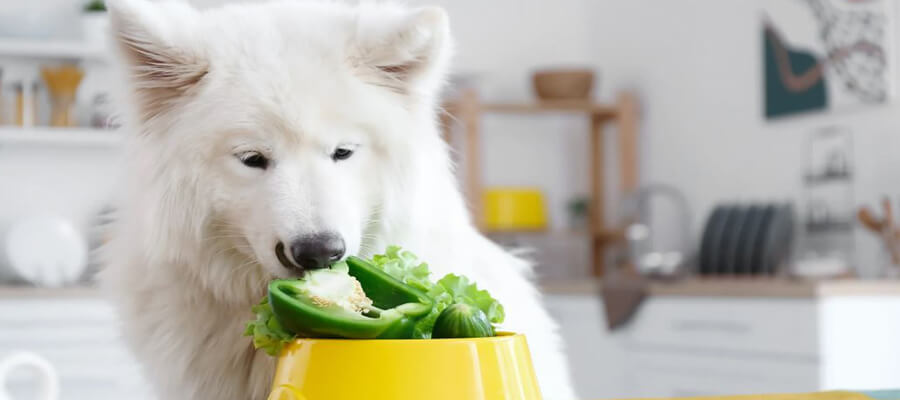
What Fruits and Vegetables Are Safe for Dogs
What Fruits and Vegetables Are Safe for Dogs A Complete Guide
Introduction
As dog owners, we all want to provide our furry friends with a balanced diet that includes a variety of healthy foods. While dog food often contains meat, grains, and certain additives, many owners wonder about the safety and benefits of incorporating fruits and vegetables into their dog's diet. This guide will explore which fruits and vegetables are safe for dogs, their nutritional benefits, and how to introduce them into your dog's meals.
Why Offer Fruits and Vegetables to Your Dog
Fruits and vegetables can provide essential vitamins, minerals, and antioxidants that are beneficial to your dog's health. They can also serve as healthy treats and help maintain hydration due to their high water content. Here are some reasons to consider including them in your dog's diet:
- Nutritional Value: Fruits and vegetables are packed with vitamins A, C, E, and K, along with minerals like potassium and magnesium, which are vital for your dog's overall health.
- Fiber: The fiber found in fruits and vegetables can aid digestion and help maintain a healthy weight.
- Low-Calorie Treats: Many fruits and veggies are low in calories, making them great options for dogs who need to manage their weight.
Safe Fruits for Dogs
Essentials for Your Newly Adopted Pet
Welcoming a shelter pet into your life is a beautiful journey. Here are some handpicked items to help your new friend feel safe, loved, and right at home:
- Apples: Rich in vitamins A and C, apples can be a crunchy treat for dogs. Just be sure to remove the seeds and core, as they contain cyanide.
- Blueberries: These tiny berries are packed with antioxidants and are low in calories. They make excellent training treats!
- Bananas: High in potassium and vitamins, bananas can be a tasty and energizing snack. Moderation is key, as they are high in sugar.
- Watermelon: A hydrating fruit, watermelon is safe for dogs (without seeds and rind) and offers vitamins A, B6, and C.
- Strawberries: Packed with antioxidants, strawberries are also high in fiber. They can help improve your dog's immune system.
- Pineapple: Fresh pineapple is safe for dogs and can aid digestion. Avoid canned pineapple, as it often contains added sugars.
- Carrots: A crunchy vegetable, carrots are low in calories and high in fiber. They are great for dental health and can be served raw or cooked.
- Pumpkin: This nutritious vegetable is excellent for digestion and can be offered cooked or in puree form (unsweetened, with no added spices).
- Green Beans: Low in calories and high in fiber, green beans can be a filling treat for dogs. They can be served raw or steamed.
- Cucumbers: Low in calories and hydrating, cucumbers are a refreshing snack for dogs, particularly in the summer.
Fruits and Vegetables to Avoid
While many fruits and vegetables are safe for dogs, some can be toxic or harmful. Avoid the following:
- Grapes and Raisins: These can cause kidney failure in dogs, even in small amounts.
- Onions and Garlic: Both can be toxic and lead to anemia in dogs.
- Avocado: Contains persin, which can be harmful to dogs in large amounts.
- Cherries: The pits contain cyanide and can be dangerous if ingested.
- Mushrooms: Certain varieties can be toxic to dogs and should be avoided.
How to Introduce Fruits and Vegetables to Your Dog
- Start Slowly: Introduce new fruits and vegetables one at a time to monitor for any adverse reactions or allergies.
- Cut into Small Pieces: Chopping fruits and veggies into small, manageable pieces can prevent choking hazards.
- Cook or Steam: For tougher vegetables, consider cooking or steaming them to make them easier to digest.
- Mix with Regular Food: You can mix small amounts of fruits and vegetables into your dog’s regular food for added flavor and nutrition.
- Use as Treats: Offer fruits and vegetables as treats during training sessions or as rewards for good behavior.
Conclusion
Incorporating fruits and vegetables into your dog's diet can provide numerous health benefits and add variety to their meals. By choosing safe options and introducing them gradually, you can help your furry friend enjoy delicious, nutritious snacks that contribute to their overall well-being. Always consult with your veterinarian before making significant changes to your dog’s diet to ensure their specific needs are met. With the right approach, fruits and vegetables can become a wonderful addition to your dog's life, enhancing their health and happiness.
Affiliate Products
We may earn a small commission when you shop through our links — it helps us keep sharing love and care for every dog out there, at no extra cost to you.
Up to 75% Discount

Dog Collar with Health Monitoring
BUY NOW »
Up to 55% Discount

Luxury Faux Furhuge Napping Bed
BUY NOW »

